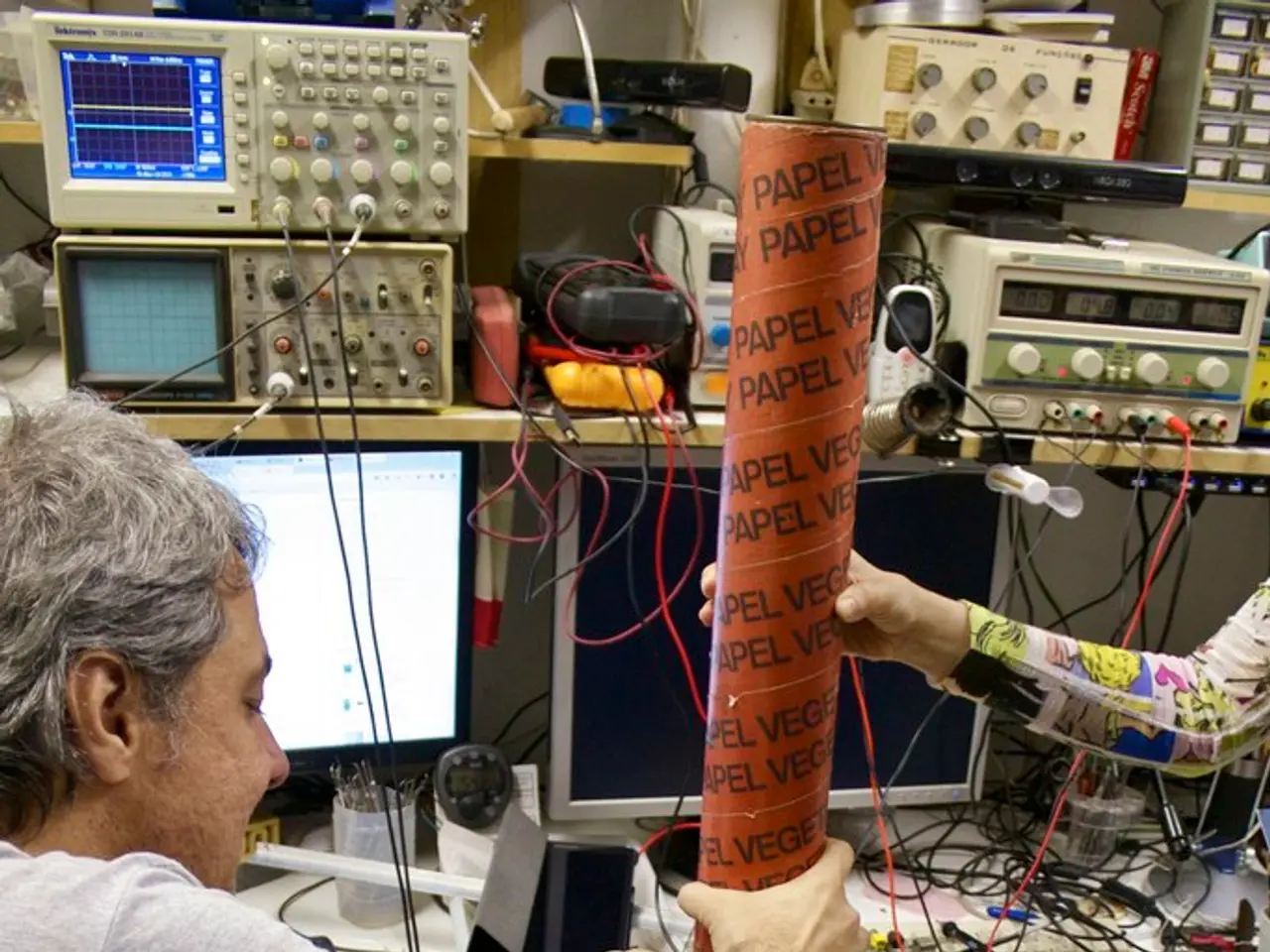Technologies on the Job Front: Impact on Roles, Workflow, Work Settings, and Human Resource Management
In today's rapidly evolving business landscape, the integration of emerging technologies like artificial intelligence (AI), quantum computing, and augmented reality (AR) is poised to significantly impact work, workflows, workplaces, and human resource functions. Here's a look at how HR can adapt to these changes.
## The Impacts of Emerging Technologies
### Work
The advent of AI could potentially replace a significant number of jobs, affecting up to 300 million full-time jobs by transforming tasks and workflows. However, it also presents an opportunity for humans to focus on more strategic and creative work, freeing them from routine tasks.
### Workflow
AI integration can streamline workflows, improve decision-making, and enhance productivity by automating repetitive tasks. Technologies like quantum computing can solve complex problems faster, leading to more efficient workflows in fields like drug discovery and cryptography.
### Workplace
Advancements in AR/VR may lead to more virtual workplaces, offering new opportunities for remote collaboration and training. However, it's important to note that despite AI adoption, many frontline workers lack access to AI tools, highlighting a need for training to bridge the gap.
### Human Resource Functions
As AI takes over routine tasks, HR must focus on developing skills related to creativity, strategy, and AI collaboration. HR can play a crucial role in providing training and upskilling programs to help employees adapt to new technologies, reducing job insecurity concerns.
## The Role of Human Resources in Adapting to Changes
1. **Training and Development**: HR should prioritize training programs that focus on AI literacy, creativity, and strategic thinking to prepare employees for AI-driven roles.
2. **Talent Acquisition and Retention**: HR can attract and retain talent by offering roles that leverage AI's potential while ensuring employees have the skills to work effectively alongside AI systems.
3. **Change Management**: HR should lead efforts to manage organizational change, alleviating fears about job security and promoting a culture where AI is seen as a collaborative tool rather than a threat.
4. **Policy Development**: HR must develop policies that address the ethical implications of emerging technologies, ensuring equitable access to AI tools and promoting a positive work environment.
By embracing these strategies, HR departments can help organizations navigate the challenges and opportunities presented by emerging technologies, fostering a more adaptable and resilient workforce.
Automation is increasingly being used in areas that require the storing or access of information, such as fraud detection, medical diagnosis, and law. Technological advancements are expected to continue having far-reaching effects on work and the workforce. Digital platforms are central to online marketplaces and are likely to impact work, workflow, the workforce, and the human resource function.
Organizations will need a workforce with increased skill variety, autonomy, and interdependence, as well as increased cognitive, creative, technical, and social skills. The need for routine cognitive and manual skills is decreasing, while the need for non-routine cognitive and manual skills has increased. Almost all firms now provide universal access to HR services through technology and web-based applications.
HR practitioners could play a key role in identifying tasks that could be automated, and the automation of manual tasks is increasingly widespread, including tasks such as driving, cargo handling, and mining. HR professionals are now required to have the ability to apply traditional HR knowledge via technology.
In conclusion, the integration of emerging technologies presents both challenges and opportunities for HR. By adapting to these changes and embracing the strategies outlined above, HR can help organizations navigate this new landscape, fostering a more adaptable, resilient, and productive workforce.
- As emergent technologies like AI, quantum computing, and AR continue to transform workflows in various sectors, HR must focus on developing employee training programs centered on AI literacy, creativity, and strategic thinking.
- In a technology-driven market, HR can attract and retain top talent by offering roles that leverage AI's potential while ensuring employees possess the necessary skills for effective AI collaboration.
- To manage organizational change and alleviate concerns about job security, HR needs to lead efforts to promote a culture where AI is perceived as a collaborative tool, not a threat.
- In the face of ethical implications, HR must develop clear policies addressing equitable access to AI tools and cultivating an environment where technology is used responsibly.
- Anticipating the far-reaching effects of technology, HR professionals should collaborate with employers to identify tasks that can be automated, freeing up resources for specialized, cognitive, and creative tasks.
- With the increasing reliance on technology, HR needs to embrace an adaptive mindset that leverages technology to deliver universal HR services and support while focusing on fostering a productive, resilient, and adaptable workforce in the technology-driven future.




